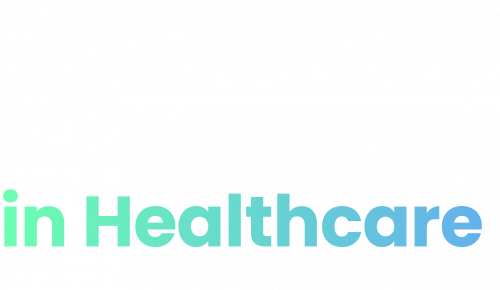
23 - 24 February 2026, Grand Millennium, Auckland
Quality, safety & productivity in healthcare
Improving healthcare without compromise
In a resource constrained world, healthcare systems, and the professionals that work within them are constantly striving to improve their productivity and efficiency. However, it is essential that this is not achieved by compromising the quality and safety of the healthcare they provide.
This important new conference investigates the intersection of quality, safety, and productivity and provides practical guidance to healthcare teams into how we can achieve all three. By sharing global evidence from around the world, where health systems are all grappling with similar challenges.
And by disseminating the best existing practice from at home in New Zealand, this event will equip those attending with the tools and knowledge they need at a critical time.

Add Your Heading Text Here
Lorem ipsum dolor sit amet, consectetur adipiscing elit.
- Lorem ipsum dolor sit amet, consectetur adipiscing elit
- Lorem ipsum dolor sit amet, consectetur adipiscing elit
- Lorem ipsum dolor sit amet, consectetur adipiscing elit
- Lorem ipsum dolor sit amet, consectetur adipiscing elit
- Lorem ipsum dolor sit amet, consectetur adipiscing elit

Key themes not to be missed
Strengthening Governance
See how strong frameworks and shared accountability lift safety and trust. Learn how clinical leaders manage risk and measure outcomes to improve care.
Advancing Quality, Safety and Equity
Explore practical ways to deliver fairer, safer care for all. Hear how Te Tiriti-led and culturally safe approaches drive real change.
Empowering and Protecting the Workforce
Put wellbeing at the centre of safety. Discover how teams are tackling burnout and supporting staff through change.
Technology for Better Care
Find out how AI, telehealth and data tools boost quality and productivity. Learn how smart tech reduces admin and frees time for patients.
Continuous Learning and Partnership
See how collaboration with whānau drive innovation. Explore systems that make quality improvement part of everyday care.
KEY SPEAKERS FOR 2026
Our 2026 key lineup brings together influential leaders, clinicians, and innovators driving change in the healthcare system.
Check out more today.

Peter Pronovost, MD
Chief Quality & Clinical Transformation Officer
University Hospitals (USA)

Dr Jonathan Christiansen
Chair
New Zealand Clinical Senate

Morag McDowell
Commissioner
Health and Disability Commission
Add Your Heading Text Here

Sub Heading Here
Ut elit tellus, luctus nec ullamcorper mattis, pulvinar dapibus leo.Lorem ipsum dolor sit amet

Sub Heading Here
Ut elit tellus, luctus nec ullamcorper mattis, pulvinar dapibus leo.Lorem ipsum dolor sit amet

Sub Heading Here
Ut elit tellus, luctus nec ullamcorper mattis, pulvinar dapibus leo.Lorem ipsum dolor sit amet

Sub Heading Here
Ut elit tellus, luctus nec ullamcorper mattis, pulvinar dapibus leo.Lorem ipsum dolor sit amet
Add Your Heading Text Here
We are currently working on the programme and agenda.
If you would like to have input into our research programme please email xxxx@brightstar.co.nz
Venue
The location and how you can get there
Address
Grand Millennium, Auckland
71 Mayoral Drive, Cnr Vincent Street,
Auckland 1010
Agenda
8:30 | Registration and Coffee |
8:50 | Mihi whakatau |
9:00 | Welcoming remarks from Conference Chair Dr Erica Whineray Kelly, Chief Medical Officer |
9:10 | Institute for Healthcare Improvement keynote address - Global insights for local impact: Closing the gaps and improving what matters
Lisa McKenzie, Vice President- Asia Pacific, Institute for Healthcare Improvement |
10:00 | Driving improvements healthcare quality and safety and the consumer & whanau experience of care by changing culture, embedding clinical governance and developing a learning system
Dr Sarah Jackson, National Chief, Quality and Patient Safety, Health NZ | Te Whatu Ora |
10:40 | Morning refreshments |
11:10 | The New Zealand Clinical Senate - Ensuring that the voices of those delivering care are central to decision-making
Associate Professor Jonathan Christiansen, Chair, New Zealand Clinical Senate |
12:00 | Panel discussion: Learning from each other to maximise our capacity and capability to improve the quality of care and the safety of patients Martyn Wormald, Clinical Quality & Risk Manager, Te Whatu Ora Counties Manukau Grassy Zhao, National Quality & Risk Advisor, Southern Cross Healthcare Jacky Bush, Group Manager Quality, Safety and Clinical Risk, Allevia Health Ann Whitfield, Associate Nurse Director Infection Prevention & Occupational Health, Te Whatu Ora Te Toka Tumai Auckland |
1:00 | Lunch |
2.00 | Using Human Factors approaches to improve the quality and safety of healthcare
Dr Fiona Trevelyan, National Lead – Moving and Handling, Health NZ |Te Whatu Ora |
2:40 | Improving the efficiency and productivity of care
Florian Stroehle, Co-Founder & CEO, Hendrix Health |
3.20 | Afternoon break |
3.40 | Understanding healthcare workforce wellbeing improvement as a quality and safety intervention
Dr Jo Sinclair, Chief Wellbeing Officer | Consultant Anaesthetist, Health NZ | Te Whatu Ora |
4:20 | Implementing and operationalising clinical governance and quality in practice
Dr Jerome Ng, Clinical Director - Clinical Governance, Te Whatu Ora Counties Manukau |
5:00 | Summary remarks from the Chair & Networking Drinks |
9:00 | Welcome back from Conference Chair Dr Erica Whineray Kelly, Chief Medical Officer |
9:05 | Health and Disability Commissioner Address: Lessons for the system from the work of the HDC
Morag McDowell, Commissioner, Health and Disability Commission |
9.50 | Living and leading with love – exploring the intersection of healthcare and humanity In the face of unprecedented challenges—rising costs, workforce burnout, and declining trust—healthcare organisations must rethink how they lead change. Dr. Peter Pronovost presents a bold, evidence-based framework for transformation rooted not in technology or policy, but in love. Drawing from his experience leading system-wide change Dr. Pronovost introduces a scalable operating model—Believe, Belong, Build—that integrates purpose-driven leadership, inclusive culture, and disciplined management systems. This session will explore how love, defined as the energy that uplifts and connects people, can dissolve fear, foster trust, and accelerate innovation. Attendees will learn how to operationalise this model to drive measurable improvements in clinical outcomes, workforce engagement, and financial performance. Through real-world examples and practical tools, participants will leave empowered to lead with compassion, accountability, and courage—transforming their organizations from the inside out. This session will enable participants to:
Peter Pronovost, MD, Chief Quality & Clinical Transformation Officer, University Hospitals (USA) & President, UH Veale Healthcare Transformation Institute |
10:30 | Morning refreshments |
11:00 | Humanising harm: Restorative responses to conflict, complaints and adverse events
Dr Jo Wailling, Founder, Restorative Responses |
11:40 | Working in partnership with consumers, whānau and communities to deliver safe, skilled and compassionate consumer and whānau-centred care
Angela Smith, Co-Chair, National Quality Forum, Co-Chair, Te Kāhui Mahi Ngātahi I Consumer Advisory Group & Co-Chair, Te Whatu Ora Te Ikaroa I Central Regional Consumer Council |
12:20 | Practical risk governance for quality and safety
Victoria Aliprantis, Director, Vic Consulting |
1:00 | Lunch |
2:00 | Patient Safety & Clinical Risk Updates In this series crucial clinical updates, experts will examine a range of key clinical risk areas allowing attendees to keep up to date. They will present the latest guidance and standards available that identify clinical best practice as well as delivering an analysis of effective evidence-based patient safety interventions, proven quality improvement initiatives and technology solutions that can make a difference. Covering the following areas:
|
4:00 | Summary remarks from the Chair & end of Conference |
Speakers
Speakers to be announced

Florian Stroehle
Read bio
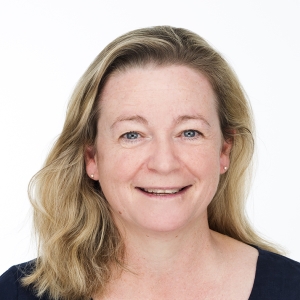
Ann Whitfield
Read bio

Dr Fiona Trevelyan
Read bio
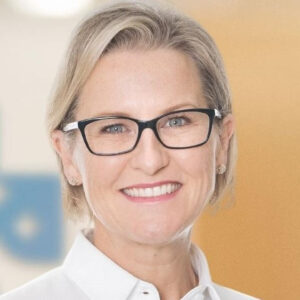
Dr Erica Whineray Kelly
Read bio

Victoria Aliprantis
Read bio
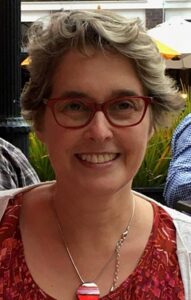
Carolyn Clissold
Read bio

Louise Kennedy
Read bio

Jacky Bush
Read bio

Grassy Zhao
Read bio

Martyn Wormald
Read bio
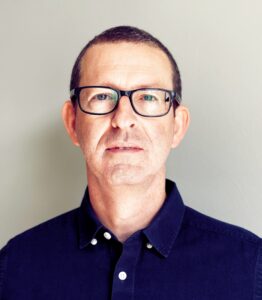
Dr Alex Psirides
Read bio
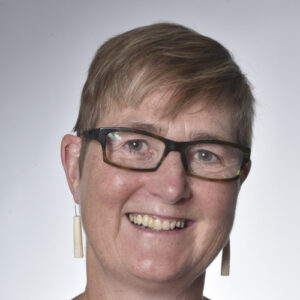
Dr Sarah Jackson
Read bio
Want to connect with this health sector audience?
Take the unique opportunity to engage with a highly qualified health sector audience. There are some exclusive opportunities to promote your company, products and services.
Contact sponsorship@brightstar.co.nz for more information.
Don't miss out on the connections and credibility boost!
Live B2B events are your chance to shine. Showcase your thought leadership, solidify your market position, and forge valuable connections with potential customers – all at once.
This exclusive event puts you in front of a highly skilled audience hungry for insights. Get ready for meaningful engagement that drives results.
Plus, we have some unique opportunities to put your company, products, and services in the spotlight.
Ready to take your brand to the next level? Contact us today to learn more or secure your spot at this leading event.

Individual tickets
Group tickets
Multi-Buy 3+ or 5+ tickets
Multi-buy 3+ Last Minute
-
Must be from same organisation and book at same time. For valid tickets, payment by 23 February, 2026.
Multi-buy 5+ Last Minute
-
Must be from same organisation and book at same time. For valid tickets, payment by 23 February, 2026.
Health NZ & NGOs rate
Super Saver
Health NZ & NGOs rate-
For valid ticket, payment by 19 December, 2025.
Early Bird
Health NZ & NGOs rate-
For valid ticket, payment by 23 January, 2026.
Last Minute
Health NZ & NGOs rate-
For valid ticket, payment by 23 February, 2026.
Individual tickets
Group tickets
Multi-Buy 3+ or 5+ tickets
Multi-buy 3+ Early Bird
-
Must be from same organisation and book at same time. For valid tickets, payment by 23 January, 2026.
Multi-buy 3+ Last Minute
-
Must be from same organisation and book at same time. For valid tickets, payment by 23 February, 2026.
Multi-buy 5+ Early Bird
-
Must be from same organisation and book at same time. For valid tickets, payment by 23 January, 2026.
Multi-buy 5+ Last Minute
-
Must be from same organisation and book at same time. For valid tickets, payment by 23 February, 2026.
Registration Conditions
Ticket Terms
All prices are in New Zealand dollars ($NZD)
A surcharge of 2.5% + GST applies to credit card payments on top of the total amount.
Pre-Sale Tickets are valid only for the specific event for which they were purchased and cannot be transferred to other events. To remain valid, Super Saver and Early Bird tickets must be paid by date quoted.
Group ticket options are valid for registrations from the same organisation, booked at the same time.
By selecting any special pricing offer for classes of organisation, sector, or individuals or using any promotion code, you are asserting to the organiser your right to claim any such pricing offer, and acknowledge the organiser’s right to audit such claim and, if in the opinion of the organiser using its sole discretion the conditions for special pricing are not met, reject any registration.
For full terms & conditions, please visit https://www.brightstar.co.nz/terms-and-conditions
Make an enquiry
Got questions? Write to us.



